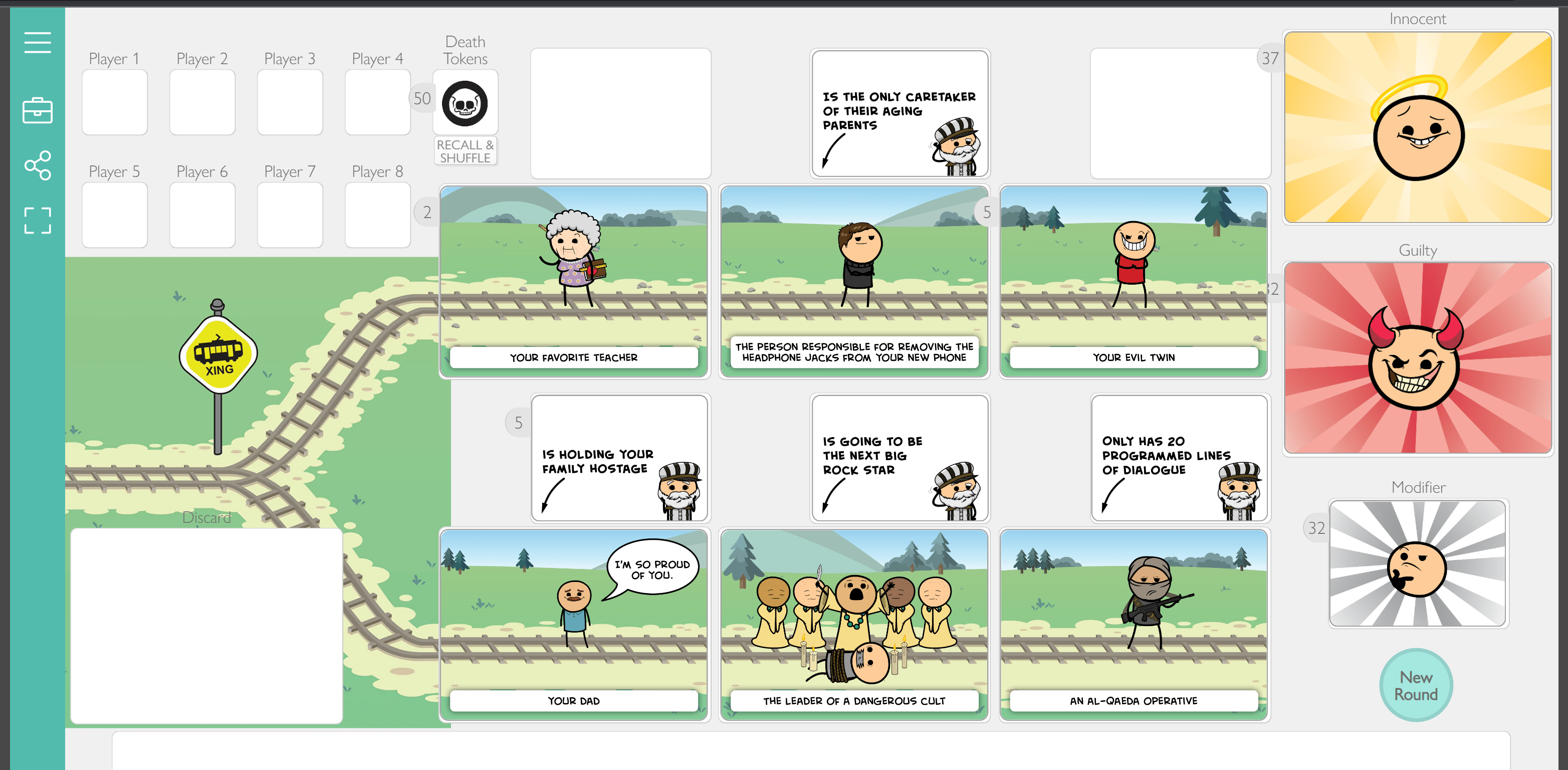My critical play this week was about the board game Trial by Trolley, which is a humorous social game aimed at facilitating conversations and generating short (and playful!) narratives. There is one rotating judge and two teams split evenly, whose goal is to convince the judge to pick the opposing track to eliminate. They do this by playing cards on either side of the track, either playing good cards on their own side (such as parents, your favorite teacher, etc.) or bad cards on the opposing side (your evil twin, an al-qaeda operative, etc.) The game also uses modifier cards to change certain people, allowing players to interact with one another and adding another interesting layer to the game.

Because the game is conversational, the experience is significantly better in person than online, where users can interact more easily with more intentionality. The game is also intentionally designed to have players get to know each other better, as each individual has their own preferences and sense of humor. The dark humor and playful tone is set by the graphics, which are made in a Cyanide & Happiness cartoon style.
One issue the game suffered from, however, was abuse and bias. For example, if the judge knows which people are on which team, they may be incentivized to support (or not support) their friends, or to not give points to the leading player. On the other hand, if the tracks are left anonymized, the judge does not get to interact very much, which can lead to boredom very easily. As designers, we were also struggling to answer this question for our game — our solution was to deanonymize the teams, but to randomize the point generation in order to confuse players as to who is ahead.


